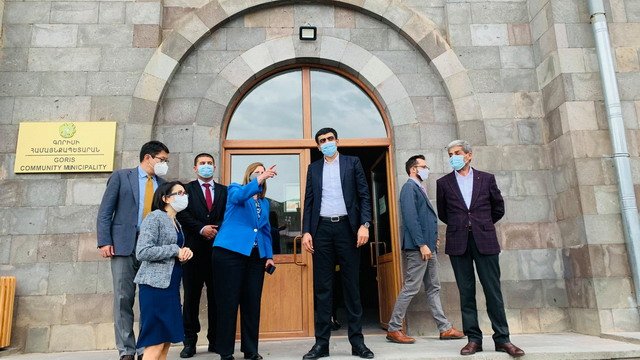During the election campaigns of 2017, Levon Ter-Petrossian, in his analysis of the “Karabakh portion” of the political forces’ election campaigns on Kentron TV, said that, according to the Way Out (Yelq) alliance, the problem will be resolved when Azerbaijan recognizes the people of Artsakh’s right to self-determination. The ANC’s leader said that the problem will never be resolved with that pre-condition because Azerbaijan will never recognize that right. Even if all the world’s organizations and countries do it, Azerbaijan will never. (I am not quoting him directly in order to express his thoughts briefly).
I did not speak of this example in order to discuss this issue once again (despite the fact that it has been proven that Way Out’s plans are far from reality), but to emphasize the importance of some level of thought. That thought is referred to as reality or pragmatism. It is pleasing to swear, be in a state of self-deception, and to create your own reality. But there is a reality that is never so bright.
US President Joe Biden’s pro-Armenian step, the American ambassador’s visit to the Syunik Province, and her “warm” interview with Azatutyun Radio awakened hope in our emphatic “pro-American” populace; they said, “Yes, America is returning to the region.”
Those who are in a state of euphoria need to consider a few things.
Read also
First, the South Caucasus was never interesting for the United States as it does not have much to do with the USA’s interests.
Second, the USA has grown noticeably active in the OSCE Minsk Group. It is enough to follow the level of American diplomats who were appointed to be representatives of the co-chair nation.
Third, showing Turkey the “yellow card” does not mean that America has changed its position.
Fourth, the USA feels the seriousness of the current Armenian authorities, including how much those authorities prioritize US-Armenia relations. Lilit Makunts’ candidacy as the Armenian ambassador is a display of that.
Yes, it would be desirable for the US to grow more active in the South Caucasus. As strange as it sounds, it will be somewhat beneficial to Russia. Based on several signals, that country does not want the “management” of the Artsakh issue to be controlled by the Russian-Turkish tandem, and it wants to “resurrect” the OSCE Minsk Group as much as possible. But to get excited too soon, especially when government or pro-government circles are doing so, is not going to help.
Aram Abrahamyan



















































